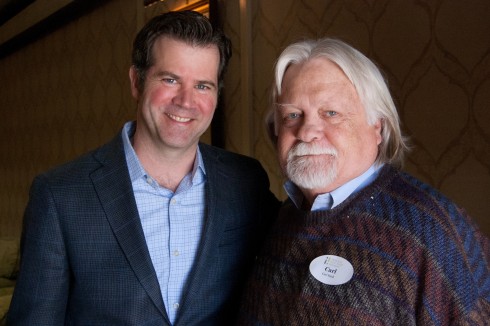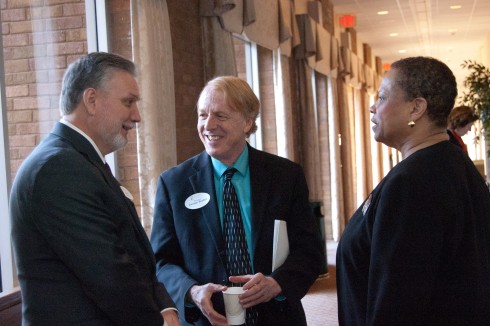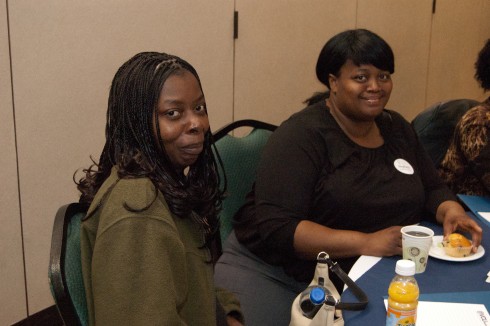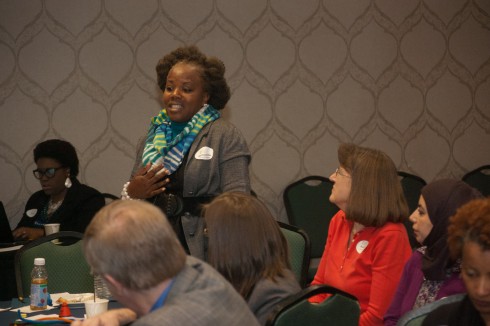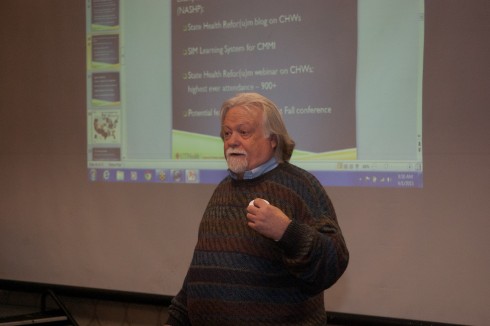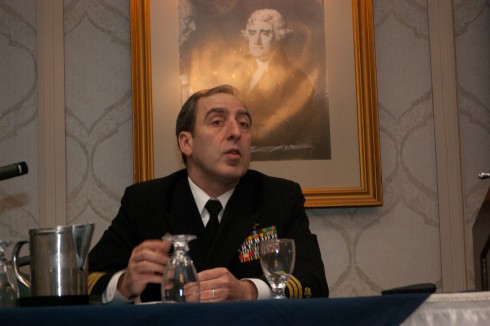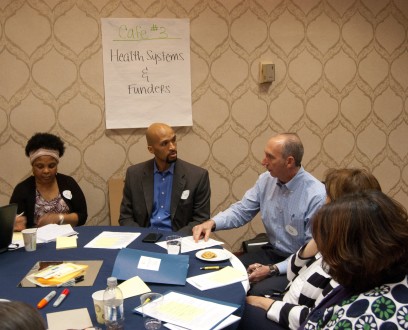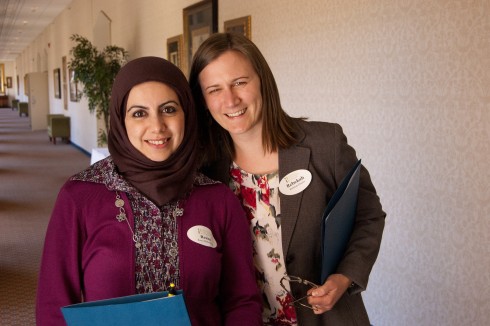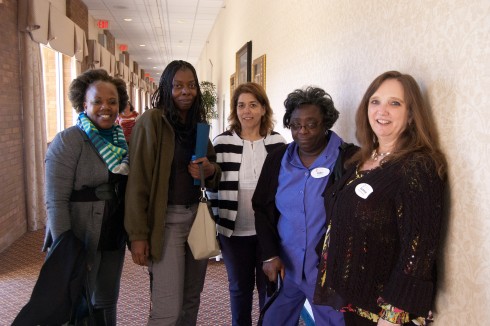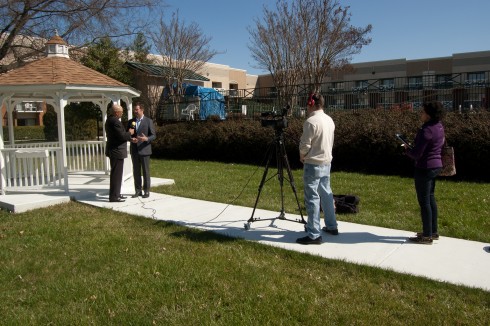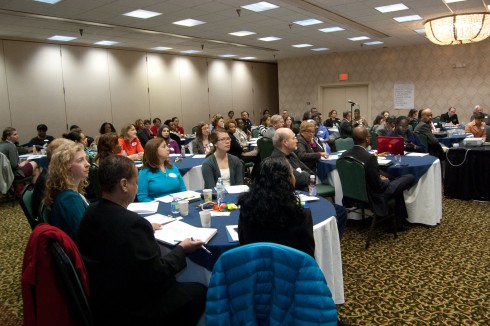
Freddy Zambrano, Community Health Worker (CHW) for the Fredericksburg Area HIV/AIDS Support Services told an audience of over 75 people about a 65-year-old Spanish-speaking patient, suffering from HIV and breast cancer, who called him frantic about her upcoming release from the hospital with no one to assist her at home. “For hours, I called all of the resources that I could find until I found one agency willing to provide her home health care. Without my help, this woman more than likely would have been readmitted, which is why we need more CHWs,” said Freddy. His story of making a difference in someone’s life was all too familiar to the CHWs, elected officials, public health professionals, hospital and healthcare leaders, funders, and representatives from community based organizations who gathered to discuss how to increase awareness about the critical roles of Community Health Workers in bridging health care and population health in Virginia.
The one-day forum began with a breakfast meeting of state level public policy and health decision-makers, CHWs and others, to raise awareness and identify opportunities for them to support the growth of the CHW workforce. Speakers included Congressman Robert C. “Bobby” Scott, State Senator George L. Barker, and a representative from Congressman Rob Wittman’s office, who gave opening remarks. Congressman Scott emphasized that the Affordable Care Act has opened the door to hire more CHWs while Senator Barker underscored that educating legislators about the important role that community health workers play is critical.
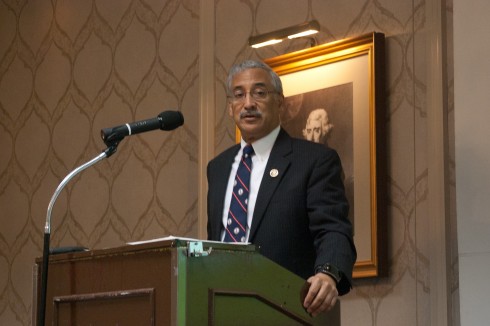
Topics during the morning plenary sessions ranged from the added value of CHWs in achieving the “Triple Aim” of health care (improved population health, improved quality, and reduced costs) to federal CHW initiatives to support the development of CHW models, to the past, present, and future of CHWs in Virginia. Panelists Carl Rush, MRP, Research Affiliate for the Project on Community Health Worker Policy and Practice, a part of the University of Texas Institute for Health Policy, stressed the need to establish sustainability for the work of CHWs and gave examples of success in this area. Some of the audience members made comments to the panel, many of them focusing on the value of CHWs.
The afternoon began with a facilitated discussion among CHWs, such as Freddy, who passionately described the successes and challenges of their jobs. A common thread in their stories was their commitment to their work and the positive impact that they make on the communities they serve.
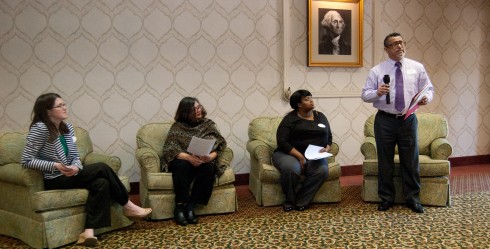
The afternoon activities concluded with a “Global Café” interactive session in which attendees collaboratively developed ideas for an awareness campaign that would build support for sustaining the CHW workforce among CHWs, the general population, insurers, health systems, and philanthropists.
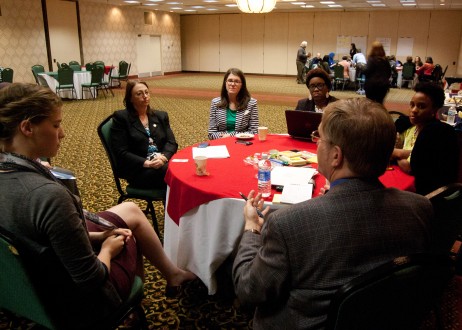
Forum moderator Michael Rhein, President & CEO of IPHI, ended the conference by issuing a call to action to attendees to continue their efforts after the forum by participating in the Virginia CHW Advisory Group and Statewide CHW Association, supporting efforts within organizations to utilize CHWs in promoting population health and health equity, contributing to the creation of the multi-sector CHW awareness campaign, and participating in high level decision-making regarding the institutionalization and sustainability of CHWs.
“Finally, the community health worker profession is beginning to get the attention it deserves as a critical resource within our health and social service systems. IPHI looks forward to working with leaders across Virginia to help build and lift up this essential workforce,” said Rhein as he wished the attendees a safe travel home.
To learn more and to get involved, contact Dr. Michael Royster at mroyster@institutephi.org.
